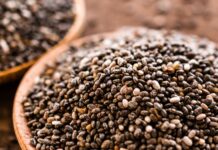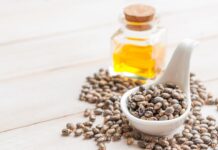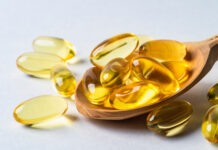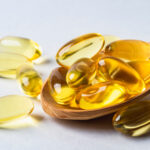Are you a breastfeeding mother and get concerned before adding anything new to your diet? We heard you! We totally understand your concern. Knowing the fact, your breastmilk is the major source of your infant’s diet makes you anxious. Fret not because it is completely normal.
This time if it is organic chia seeds that’s you are confused with whether to have it or not. If the question that it will be beneficial or harmful for your baby is bothering you, relax and keep on reading.
First thing first, know that these seeds are known for their incredible health benefits. In addition to this, they are safe, nutritious and suitable for use during pregnancy and breastfeeding.
Got some relief? Great! Let’s dig out in a bit more detail to know what makes them safe to use while nursing your baby coupled with how much you can take etc.
Source of Multiple Nutrients for Breastfeeding Mothers
Nursing mamas! An extra 450 to 500 calories are required in breast milk production daily. And one ounce of chia seeds contains 138 calories. Thus, a little quantity can help you meet your milk production range.
Furthermore, as a matter of fact, eating healthy foods while breastfeeding is essential as the baby absorbs nutrients from the mother through milk. And you might be surprised to know that taking chia oil leads to adding DHA in breast milk. Normally, DHA production takes place before and after 3 months of delivery.
Apart from this, eating chia seeds during pregnancy can also reduce the risk of catching gestational diabetes.
DHA is an essential element for your newborn’s brain development. Furthermore, it also possesses minerals like calcium which is again incredibly important for newborn baby bone strength.
Enriched with Omega 3
They are essential fatty acids to maintain an optimized health. Thus, your diet should have foods enriched with Omega 3.It helps your body get prevention from heart disease, diabetes and depression by fighting inflammation.
Also, Omega-3 fatty acids are especially important during pregnancy as they promote fetal brain growth. As per studies, it also reduces the risk of premature birth. Apart from this, if you are a vegetarian then it is a life-saver for you because it is plant based.
Therefore, it’s a good idea to get an essential supplement from chia seeds having omega-3 fatty acids. Otherwise, you will need to get them from fish or algae-based supplements.
Source of Calcium for Breastfeeding Women
One ounce, or about two tablespoons, of chia seeds, provides 179 mg of calcium, making them a reliable source of calcium. This represents more than 18% of the recommended daily calcium intake (RDA) for pregnant women, namely about 1,000 mg.
Likewise, Breastfeeding is a time when calcium is especially important as it supports the baby’s growing teeth and bones. Consuming enough calcium can also reduce the risk of blood pressure and damage to the liver and kidneys.
Note
However, take note that foods that are rich in fiber and absorb water (such as chia seeds) may cause stomach upset, constipation or even diarrhea. Additionally, if you are taking medication to control your blood sugar levels; firstly consult your doctor before adding chia seeds into your diet. Reason being, chia seeds, when taken with medication can lower blood sugar levels.
However, for mothers here is a tip. Soak chia seeds before eating them. Afterward, eat them sparingly to reduce these dangers. It is usually best to not eat more than one ounce of the seeds per day.
Chronic Inflammation
Chronic inflammation sometimes affects mothers. The strong anti-inflammatory properties of chia seeds can be helpful in such cases. Regular consumption of chia seeds has been linked to reduced blood pressure, cholesterol and triglycerides, as per studies. Thus, this supports your heart health.
In addition, chia seeds help regulate blood sugar levels after meals. All these miracles of chia seeds are because of having soluble fiber and essential fatty acids. Breast milk can also provide these benefits to the infant.
How a Breastfeeding Mother can Consume Chia Seeds
Oily fish is consumed for its excellent protein content and high PUFA (polyunsaturated fatty acid) content and can be replaced with chia seeds. Vegan moms will find it the perfect choice thanks to its easily digestible plant-based proteins.
However, as far as how to consume them is concerned. Simply, you can use them after soaking in water. Also, you can add them to smoothies and juices. Likewise, add them to your cereals, yogurt or porridge. Chia seeds absorb water and become gelatinous. This property of chia seeds allows the preparation of various breakfast cereals and smoothies.
Furthermore, they can also be sprouted and then added to sandwiches, salads, and other foods. Also, it can be used to make sauces and salad dressings.
Breastfeeding moms with celiac disease will find that it’s gluten-free. Soups can be thickened with dried powdered chia seeds. It can also be substituted with eggs. Mix them with water by a ratio of 1:3 and it will become equivalent to one egg.
Additionally, chia seeds can be included in non-vegetarian recipes. Studies show that adding chia seeds to animal diets can reduce the amount of serum lipids and saturated fatty acids in animal products.
Bottom Line: Moderation
Indeed, it is important to check the benefits of everything you’re thinking to make part of your diet while breastfeeding. However, presenting an overview of nutrients chia seeds have, it is safe to use for nursing mothers.
Also, protein and fiber in the seeds can help you with digestion and a feeling of fullness. This will also serve as a small meal for you which you can take swiftly and feel energized for the whole day (if taken in the morning).
However, you can decide whether or not to include them in your diet. Although some doctors believe that eating chia seeds in moderation and breastfeeding is harmless; however, there are some negative consequences. Therefore, you must know your body and consult your dietician for the safe side.
You Can Also Read : Rosehip Oil, Anti-Aging Oil ?































